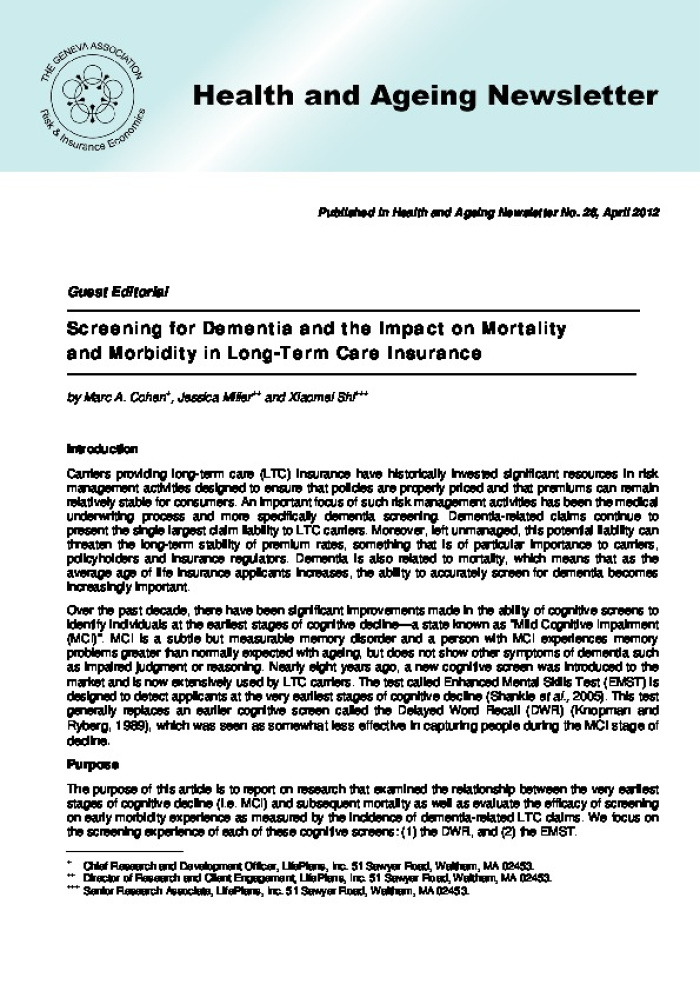Screening for Dementia and the Impact on Mortality and Morbidity in Long-Term Care Insurance

Carriers providing long -term care (LTC) insurance have historically invested significant resources in risk management activities designed to ensure that policies are properly priced and that premiums can remain relatively stable for consumers. An important focus of such risk management activities has been the medical underwriting process and more specifically dementia screening. Dementia-related claims continue to present the single largest claim liability to LTC carriers. Moreover, left unmanaged, this potential liability can threaten the long-term stability of premium rates, something that is of particular importance to carriers, policyholders and insurance regulators. Dementia is also related to mortality, which means that as the average age of life insurance applicants increases, the ability to accurately screen for dementia becomes increasingly important.
Over the past decade, there have been significant improvements made in the ability of cognitive screens to identify individuals at the earliest stages of cognitive decline - a state known as "Mild Cognitive Impairment (MCI)". The purpose of this article is to report on research that examined the relationship between the very earliest stages of cognitive decline (i.e. MCI) and subsequent mortality as well as evaluate the efficacy of screening on early morbidity experience as measured by the incidence of dementia-related LTC claims. We focus on the screening experience of each of these cognitive screens: (1) the DWR, and (2) the EMST.





